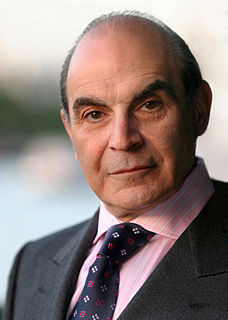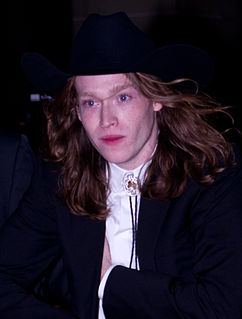A Quote by Graham Moore
Among tech-minded kids, I think Alan Turing was a tremendous inspiration. He was a guy that was so different than the people around him. He was an outsider in his own time, but because he was an outsider is precisely why he was able to accomplish things nobody thought was possible.
Related Quotes
In so many roles I've played the outsider. As an outsider, you have more energy to succeed simply because you are an outsider. There are scripts floating around but they're not coming my way and I think that I am getting a little bit too old to play Napoleon. But if I was ever offered the role I would grab it.
I did not always trust my teachers, because I found them too weak. I was looking for something that could take me in a new direction, for things that I could admire. And because it was so hard to find this, I became a sort of outsider. That's why I began to identify with the insane, "outsider" artists.
The mockery made him feel an outsider; and feeling an outsider he behaved like one, which increased the prejudice against him and intensified the contempt and hostility aroused by his physical defects. Which in turn increased his sense of being alien and alone. A chronic fear of being slighted made him avoid his equals, made him stand, where his inferiors were concerned, self-consciously on his dignity.
I think it's different in fashion, because even if I would be an outsider, I would still be in the middle of the whole world of contemporary fashion. But it's interesting to think what outsider fashion could be. Does it mean to be completely disconnected from the regular system or just disconnected style-wise?
Alan Turing is so important to me and to the world, and his story is so important to be told, so it was a big thing to take up, and I was a little petrified. Like, who am I to write the Alan Turing story? He's one of the great geniuses of the 20th century - who was horribly persecuted for being gay - and I'm a kid from Chicago.
Historically different groups find different things in each comics, as with *X-Men*. Gay readers find parallels to living a closeted lifestyle or choosing to come out and be openly gay. Black readers find a relevance to their lives growing up in America as a black guy. Picked-on brainy kids find a metaphor for being an outsider. It's a simple enough, and direct enough metaphor that it has different shades for different people. And so each reader to some degree gets out of it what they bring to it. That's one of the things I think that makes *X-Men* such a strong property.


































